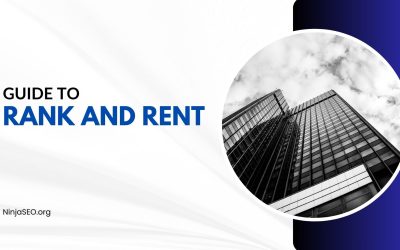So you have a website and you want it to rank higher in search engine results? Well, you’re in luck – the solution is called Content SEO.
In a nutshell, Content SEO is all about optimizing your website’s content so that it is not only appealing to your readers but also to search engines.
By incorporating relevant keywords, creating high-quality and engaging content, and ensuring your website is properly structured, Content SEO can help increase your visibility and drive organic traffic to your site. It’s time to take your website’s ranking to the next level with Content SEO.
What is Content SEO?
Definition of Content SEO
Content SEO, also known as search engine optimization, is the practice of optimizing website content to improve its visibility and ranking on search engine results pages. It involves various strategies and techniques aimed at enhancing the quality and relevance of website content to attract organic traffic and deliver a better user experience. By effectively implementing content SEO, website owners can increase their online visibility, drive more targeted traffic, and ultimately achieve their digital marketing goals.
Importance of Content SEO
In the digital age, where websites are abundant, content SEO has become crucial for businesses and individuals seeking an online presence. Here are a few reasons why content SEO is important:
- Visibility and Rankings: Content SEO helps improve a website’s visibility on search engines, allowing it to appear higher in the search engine results pages (SERPs). Higher rankings lead to increased visibility, resulting in more organic traffic.
- Targeted Traffic: By optimizing content with relevant keywords and phrases, content SEO attracts users who are actively searching for specific information or products. This targeted traffic is more likely to convert into leads or customers.
- User Experience: Content SEO focuses on creating high-quality, relevant, and engaging content that satisfies user intent. When users find value in the content, they are more likely to spend time on the website, decreasing bounce rates and increasing user engagement.
- Competitive Advantage: In today’s highly competitive online landscape, businesses that invest in content SEO gain a competitive edge by outranking their competitors, attracting more organic traffic, and establishing themselves as authoritative sources within their industry.
- Long-term Results: Content SEO provides long-term benefits, as optimized content can continue to attract organic traffic and generate leads even after the initial effort is put in. By consistently producing valuable content, a website can establish trust and authority within its niche.
Key Elements of Content SEO
To effectively optimize website content and improve its search engine visibility, several key elements of content SEO should be considered.
Keyword Research
Keyword research is the foundation of content SEO. It involves identifying the words and phrases that users are likely to use when searching for specific information or products. By conducting thorough keyword research, website owners can understand their target audience’s search behavior and optimize their content accordingly.
Content Creation
Creating high-quality, unique, and relevant content is vital for content SEO. Search engines prioritize websites that provide valuable information to users. By producing compelling and informative content, website owners can attract organic traffic, increase user engagement, and build their brand authority.
On-page Optimization
On-page optimization involves optimizing various elements within a webpage to improve its visibility in search results. This includes optimizing meta tags, using descriptive headings, incorporating relevant keywords, and optimizing URL structures. By implementing on-page SEO strategies, website owners can enhance their content’s visibility and improve its chances of ranking higher in search results.
Benefits of Content SEO
Implementing effective content SEO strategies can bring several benefits for website owners and businesses.
Improved Organic Rankings
By optimizing website content for relevant keywords and search intent, content SEO can help improve organic rankings on search engines. Higher rankings increase visibility, putting a website in front of more potential visitors, and increasing the chances of attracting targeted traffic.
Increased Website Traffic
Optimizing content for search engines helps drive organic traffic to a website. When a website appears higher in search results, it receives more clicks and visits from users actively seeking information or products related to the content. Increased website traffic can result in higher conversions and business success.
Better User Engagement
Engaging website visitors and keeping them on the site for longer periods is crucial for success. Content SEO focuses on creating valuable, relevant, and engaging content that satisfies user intent. When users find the content helpful and informative, they are more likely to spend time on the website, reducing bounce rates, and increasing user engagement metrics.
Using Keywords in Content SEO
Keywords play a crucial role in content SEO, and it’s important to use them effectively and strategically.
Choosing Relevant Keywords
To optimize content effectively, it’s essential to choose relevant keywords that align with user search intent. Keyword research tools can help identify the most popular and relevant keywords in a particular niche. By understanding the keywords users are searching for, website owners can create content that meets their needs and expectations.
Keyword Placement in Content
Once relevant keywords are identified, it’s important to strategically place them within the content. Key areas to optimize include the page title, headings, subheadings, meta descriptions, and the body of the content. However, it’s important to avoid overusing keywords, as search engines may consider it as keyword stuffing, which can negatively impact rankings.
Avoiding Keyword Stuffing
Keyword stuffing refers to the practice of excessively using keywords in an attempt to manipulate search engine rankings. This practice is considered spammy and can result in penalties from search engines. Instead of focusing on keyword density, it’s important to prioritize writing high-quality, informative content that naturally incorporates relevant keywords.
Optimizing Content for Search Engines
In addition to keywords, several other factors should be considered when optimizing website content for search engines.
Writing High-Quality and Relevant Content
High-quality, unique, and relevant content is essential for successful content SEO. Search engines prioritize websites that provide value to users. By focusing on delivering well-researched, informative, and engaging content, website owners can satisfy user intent and improve their search engine rankings.
Proper Title Tags and Meta Descriptions
Title tags and meta descriptions play a significant role in content SEO. These elements provide concise descriptions of the webpage’s content, helping search engines understand its relevance to user queries. By optimizing title tags and meta descriptions with relevant keywords, website owners can improve their click-through rates and attract more organic traffic.
Optimizing URL Structures
URL structures can impact a website’s SEO performance. Search engines prefer URLs that are concise, descriptive, and contain relevant keywords. Optimizing URL structures helps search engines and users understand the page’s content more easily. It’s essential to use hyphens to separate words and avoid using numbers or unnecessary characters in URLs.
Importance of Properly Structured Content
The structure of content plays a significant role in content SEO. Well-structured content can improve user experience, facilitate readability, and enhance search engine visibility.
Using Headings and Subheadings
Headings and subheadings break up content into logical sections, making it easier for users and search engines to understand the hierarchy and organization of information. By using descriptive headings and subheadings, website owners can improve the overall readability and SEO performance of their content.
Creating Easy-to-Read Paragraphs
Long paragraphs can be overwhelming for users, discouraging them from reading the entire content. Breaking content into shorter paragraphs and adding spacing between them improves readability and keeps users engaged. It’s also important to use clear and concise sentences and ensure the content flows smoothly.
Utilizing Bulleted and Numbered Lists
Bulleted and numbered lists make content more scannable and easier to digest. They help users quickly identify key points and highlights. Additionally, search engines recognize and appreciate the use of lists, providing additional SEO benefits.
Importance of Fresh and Updated Content
Creating and maintaining fresh and updated content is vital for content SEO. By regularly publishing new content and improving existing content, website owners can enhance search engine visibility and attract more organic traffic.
Regularly Publishing New Content
Regularly publishing new content sends positive signals to search engines, indicating that the website is active, up-to-date, and consistently providing value to users. Fresh content can attract new visitors and encourage them to explore more of the website, increasing engagement and improving SEO performance.
Updating and Improving Existing Content
Updating and improving existing content is as important as publishing new content. By keeping existing content up-to-date, website owners can ensure that the information presented remains accurate and relevant. They can also take advantage of new SEO strategies and incorporate additional keywords to improve search engine visibility.
Relevance and Long-Term Value
Content should be relevant and provide long-term value to users. By addressing topics that are evergreen or have lasting significance, a website can continue to attract organic traffic long after the initial publication. Providing valuable and timeless content helps establish credibility and authority within a niche.
Importance of Mobile-Friendly Content
With the increase in mobile device usage, optimizing content for mobile devices has become essential. Mobile-friendly content improves user experience, increases visibility on search engines, and ensures that the website remains accessible to a larger audience.
Responsive Design and Mobile Optimization
Responsive design ensures that a website adapts and displays properly on various screen sizes, including mobile devices. Mobile optimization focuses on improving the website’s performance, loading speed, and usability on mobile devices. Both responsive design and mobile optimization contribute to a positive user experience and improve content SEO.
Mobile Accessibility and User Experience
Accessibility is crucial for mobile users. Optimizing content for mobile accessibility involves ensuring that it is easy to navigate, read, and interact with on mobile devices. Mobile users should have a seamless and satisfying experience when accessing the website, contributing to better user engagement and improved SEO performance.
Mobile-First Indexing
Google now predominantly uses mobile-first indexing, meaning it primarily uses the mobile version of websites for indexing and ranking. By prioritizing mobile-friendly content, website owners can improve their chances of ranking higher in search results and attracting mobile users.
Content Promotion and Link Building Strategies
Aside from optimizing content for search engines, content promotion and link building are essential for content SEO success.
Social Media Marketing
Social media platforms provide opportunities to promote content, engage with users, and drive traffic to a website. By sharing content on social media platforms, website owners can reach a wider audience, increase brand awareness, and attract more visitors. Additionally, social media engagement signals, such as likes, shares, and comments, can positively impact SEO performance.
Guest Blogging and Influencer Outreach
Guest blogging involves contributing articles to other websites within the same industry or niche. By guest blogging, website owners can build backlinks to their site, increase brand exposure, and attract referral traffic. Influencer outreach can also help amplify content reach, as influencers can share and promote content to their followers.
Building Internal and External Links
Building internal links within a website helps search engines understand the site’s structure and hierarchy. It also provides additional navigation paths for users, enhancing their overall experience. External links from reputable and relevant sources can significantly improve a website’s credibility and SEO performance. By incorporating a diverse array of links, website owners can strengthen their content SEO strategy.
Monitoring and Measuring Content SEO
To gauge the effectiveness of content SEO efforts, it’s important to monitor and measure various metrics and indicators.
Tracking Keyword Rankings
Regularly monitoring keyword rankings can provide insights into how content SEO strategies are performing. By tracking keyword rankings, website owners can identify areas for improvement, make necessary adjustments, and optimize content accordingly.
Analyzing Website Traffic and Conversions
Analyzing website traffic and conversions helps determine the impact of content SEO efforts. By examining metrics such as organic traffic, bounce rates, time on site, and conversion rates, website owners can gain valuable insights into user behavior and the effectiveness of their content.
Using Tools like Google Analytics and Search Console
Tools like Google Analytics and Google Search Console provide valuable data and insights into a website’s performance. These tools can help track website traffic, measure keyword rankings, analyze user behavior, and identify areas for improvement. By utilizing these tools, website owners can make data-driven decisions to enhance their content SEO strategies.
In conclusion, content SEO plays a crucial role in improving a website’s visibility, attracting organic traffic, and delivering a better user experience. By implementing key elements such as keyword research, content creation, on-page optimization, and promoting high-quality content, website owners can reap the benefits of improved organic rankings, increased website traffic, and better user engagement. By focusing on optimized content structures, fresh and updated content, mobile-friendly design, and effective content promotion and link building strategies, website owners can optimize their content for search engines and achieve long-term success. Regular monitoring and measurement of content SEO efforts using tools like Google Analytics and Search Console are essential to refine strategies and ensure ongoing improvement. So, invest in content SEO and unlock the full potential of your website!









